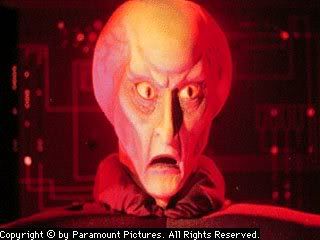History of The Nerd: The Rise and Fall and Rise of Star Trek PART 2
Last week on History of the Nerd the original cast (except Nimoy) of Star Trek was enjoying new life in the form of a brand new, high budget TV show, Star Trek: Phase II. This was the deliberator the franchise needed and the heart of the series was beating strong – at the beginning. Then the plug was pulled on the life support so Paramount could cash in on the Star Wars craze that was sweeping the nation. Star Trek: Phase II died so that Star Trek: The Motion Picture could live.
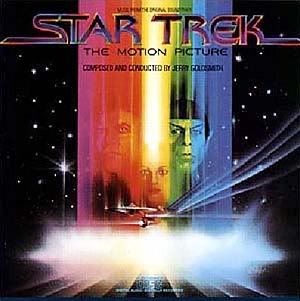
Nearly ten years had passed since the cancellation of Star Trek The Original Series (TOS) when Paramount held a massive press conference to announce the plans for a $15 million dollar budget Star Trek movie. The person attached to pilot the Enterprise back to the hearts of the world public would be none other than Academy Award winner Robert Wise, the man who edited Citizen Kane and directed The Day The Earth Stood Still. Nerds across the nation breathed a sigh of relief and came in their pants at the same time. Too bad they got a two-hour movie that had the cast dressed like intergalactic dentists with chrome plated fanny packs as they stared silently out a window.
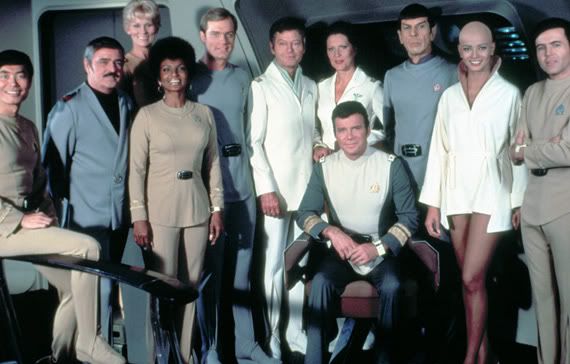

The wave of boredom the audience had to endure should have spelled the demise of the Star Trek movie run, but people were so starved for anything Trek related they went and saw it anyway. Star Trek: The Motion Picture opened on 1979 and earned $11,815,203 on its opening weekend. This would have been fine if they stayed on budget, but of course it didn’t. In fact their $15 million budget ballooned to $45million. The film ultimately made enough, $139 million worldwide, to validate doing a sequel.
They would thank Roddenberry by forcing him out of creative control of any of the other movies. Fans may get upset by this but in reality all Roddenberry would pitch for a movie was the strange idea of the Enterprise crew traveling back in time to stop some Klingons from preventing the Kennedy assassination – a strange idea that would have made a shitty movie. Then again was it a worst idea than Kirk traveling back in time to save some whales? Yes, yes it was.
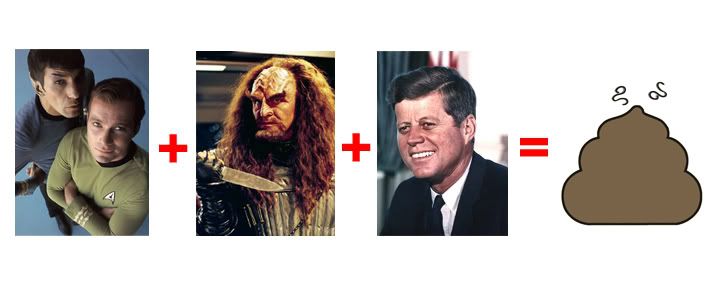
Paramount went on to have a pretty successful movie franchise after Wrath of Khan and all they had to do was shut out the creator and his crazy ideas and cut the budget down to nearly nothing. Now is how you milk a franchise, baby! The Star Trek movies are to this day some of my favorite films of all time. It was a little strange that in their numbering they skipped the number 5. (It never happened!!! Kirk and company never went searching for God in space!!!) The movies were proving to Paramount that Star Trek could make money, notably with Star Trek 4: The Voyage Home. It grossed $109,713,132 in the U.S. and $133,000,000 worldwide, not too shabby considering it only cost $27 million. This prompted the creation of a new TV series Star Trek: The Next Generation (TNG)
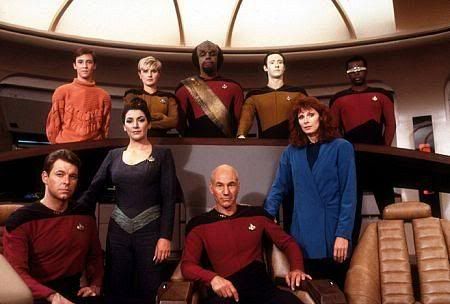
When Star Trek: TNG was announced many fans were critical. They didn’t want to see a Star Trek without the original cast. Producers didn’t even originally pick Patrick Stewart as a captain because they didn’t believe that people would accept a bald captain, they almost cast him as Data, the lovable android, which would have been really, really weird. The fans and the executives would later have to eat a metaphorical dick when TNG later soared in ratings over its seven-season run. This prompted Paramount to crank out the spin-offs like a Ford assembly line and to allow Rick Berman to drive the franchise into the fucking ground.
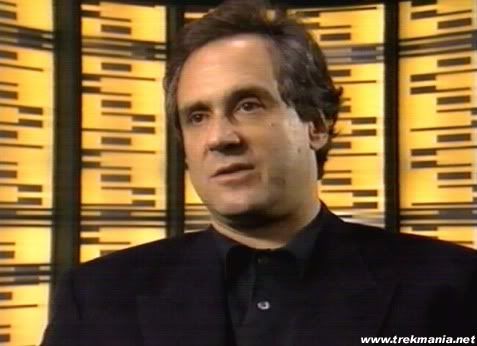
Rick Berman, the “Joel Schumacher” to Star Trek, took over the franchise after Roddneberry passed away on October 24, 1991. Berman was responsible for all the major fuck ups in Star Trek history. (ok Star Trek 5: The Final Frontier wasn’t his fault, but Star Trek Insurrection was.) He created a mood of micromanagement that never allowed writers to take chances or to be creative at all. Berman acted very much like an opium addict that was chasing the euphoria of his first hit by recycling the format and actual story lines from TNG in hopes of creating the same success. He would use this format of creating a terrible shows with Voyager and Enterprise. The only reason Deep Space Nine, in spite of having a title that can easily be porn parodied (Deep Dick Nine), was so damn good was because Berman was busy laying down the “goon hand” on Voyager. Also another insult was to use a Rod Steward song that was sung by an impersonator as the opening theme to Enterprise.
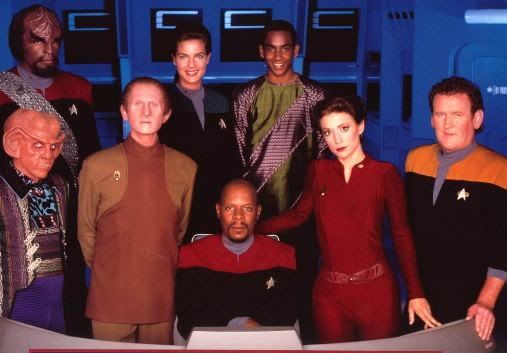
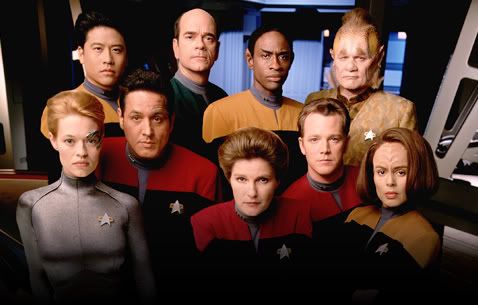
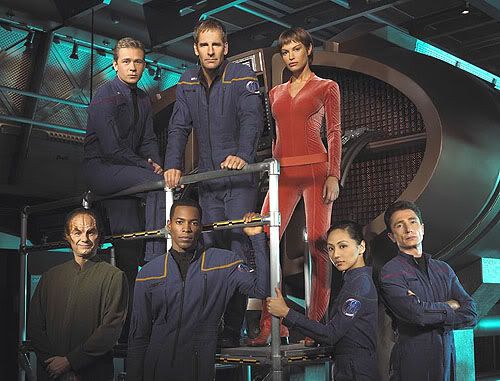
While the Star Trek spin-off series were slowly bleeding out the souls of their fan base, the Next Generation movies would do the same, only through the other orifice. When the TNG series ended Paramount wanted to repeat what they did with TOS by graduating the cast to the big leagues by putting them on the silver screen. With the exception of Star Trek: First Contact they were all terrible. Star Trek: Generations had Kirk and Picard having a pretty gay get-together on horses. It was pretty much like Brokeback Mountain for that scene. Star Trek: Insurrection had a the crew saving a planet of annoying hippies and a pimpled faced Worf going though a second adolescence. By the time Star Trek: Nemesis crawled on to the screen the world stopped caring and it was also harder and harder to pretend they weren’t getting too old and fat to be starship cowboys. The franchise was officially dead.
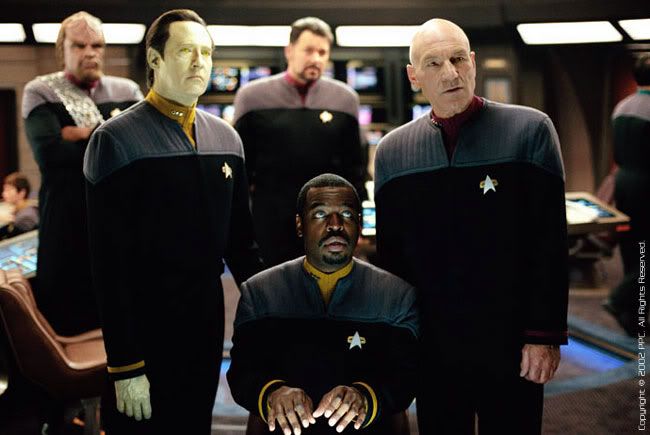
Thankfully the Star Trek universe wouldn’t stay dead thanks in part to J.J. Abrams. The funny thing was that many of the ideas in the new Star Trek movie were ones that where pitched and turned down years ago. Harve Bennett was the producer of most of the original Star Trek films. He even conceived of the stories for Wrath of Khan and The Search for Spock. After Star Trek 5: The Movie That Never Existed, Harve pitched the idea of a young Kirk and Spock’s first adventure while they were still cadets. He titled it the Academy Years. Paramount at first enjoyed the idea but began to feel their balls shrinking at the thought of making a Trek movie without established actors. They also wanted to use the original actors one last time to coincide with Star Trek’s 25th anniversary in 1999, a marketing opportunity they just couldn’t pass up. To be fair, Paramount did give Harve the opportunity to produce a different movie with the original cast. They even offered to produce Star Trek: Academy Years afterwards. Harve declined and ended his involvement with Star Trek.
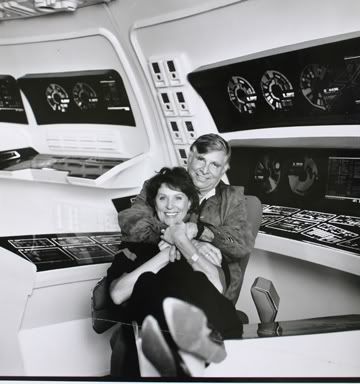
I believe that even if Abrams hadn’t come by and worked his magic Star Trek would have returned. You just can’t put the beast down, though Berman tried. Star Trek is a concept that is so open that new stories and fresh ideas can always be created from it. Star Trek will rise and fall for years to come. I even believe this cycle would continue until the end of time.
